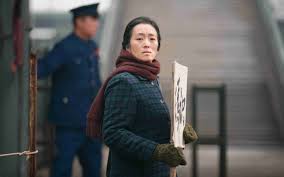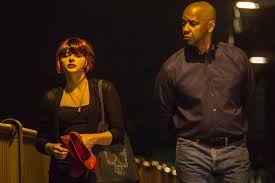FUHGEDDABOUDIT: Movie Reviews of Coming Home and Black Mass by Howard Casner
Posted: September 27, 2015 | Author: Donald | Filed under: Uncategorized | Tags: Adam Scott, Benedict Cumberbatch, Black Mass, Coming Home, Corey Stoll, David Harbour, Huiwen Zhang, Jesse Plemons, Jez Butterworth, Jingzhi Zou, Joel Edgerton, John Connolly, Johnny Depp, Kevin Bacon, Li Gong, Mark Mallouk, Peter Sarsgaard, Random Harvest, Rory Cochrane, Scott Cooper, W. Earl Brown, Whitey Bulger, Yanshi (Daoming Chen, Yimou Zhang | 7 Comments »First, a word from our sponsors: I am now offering a new service: so much emphasis has been given lately to the importance of the opening of your screenplay, I now offer coverage for the first twenty pages at the cost of $20.00. For those who don’t want to have full coverage on their screenplay at this time, but want to know how well their script is working with the opening pages, this is perfect for you. I’ll help you not lose the reader on page one.
Ever wonder what a reader for a contest or agency thinks when he reads your screenplay? Check out my new e-book published on Amazon: Rantings and Ravings of a Screenplay Reader, including my series of essays, What I Learned Reading for Contests This Year, and my film reviews of 2013. Only $2.99. http://ow.ly/xN31r
and check out my Script Consultation Services: http://ow.ly/HPxKE
Warning: SPOILERS
In 1942, Ronald Colman played a character so shell shocked by the trenches of World War I that he walked out of the hospital where he was recovering, having no idea who he was.
He was taken in by a singer in a vaudeville house (Greer Garson), fell in love and the two married. Then years later, he suddenly, out of nowhere, remembered who he really was, but totally forget that his wife existed. He discovers he’s the scion of a wealthy family and eventually runs for political office, not knowing that his secretary is actually his wife.
This movie is Random Harvest and is perhaps the most romantic and delirious use of amnesia in film. But amnesia has always been a useful tool of storytelling, whether romantic (here and in Law of Desire) or in thrillers (Mr. Budwing and Mirage) or comedy (The Hangover and 50 First Dates).
 Coming Home, written by Jingzhi Zou and directed by Yimou Zhang, falls into the more melodramatic end of the spectrum like Random Harvest. It’s unabashedly sentimental and relishes in a sort of 1930’s studio romanticism tone and style, though the grittiness makes it more Warner Brothers than MGM. Read the rest of this entry »
Coming Home, written by Jingzhi Zou and directed by Yimou Zhang, falls into the more melodramatic end of the spectrum like Random Harvest. It’s unabashedly sentimental and relishes in a sort of 1930’s studio romanticism tone and style, though the grittiness makes it more Warner Brothers than MGM. Read the rest of this entry »
THE RUSSIANS ARE COMING, THE RUSSIANS ARE COMING: Movie review of The Equalizer by Howard Casner
Posted: October 11, 2014 | Author: Donald | Filed under: Uncategorized | Tags: Antoine Fuqua, Bill Pullman, Chloȅ Grace Moretz, David Harbour, Denzel Washington, Edward Woodward, Marton Czokas, Melissa Leo, Michael Sloan, Richard Lindheim, Richard Wenk, The Equalizer | 1 Comment »First, a word from our sponsors. Ever wonder what a reader for a contest or agency thinks when he reads your screenplay? Check out my new e-book published on Amazon: Rantings and Ravings of a Screenplay Reader, including my series of essays, What I Learned Reading for Contests This Year, and my film reviews of 2013. Only $2.99. http://ow.ly/xN31r
Warning: SPOILERS
 As I was viewing The Equalizer, the new origin film (because that is what it is; it’s not an Equalizer movie, but how the central character becomes the who you gonna call, or in this case, contact via craigslist.com, crime fighter) written by Richard Wenk (from the 1980’s television series starring Edward Woodward and created by Michael Sloan and Richard Lindheim) and directed by Antoine Fuqua and starring Denzel Washington who won the Oscar when Fuqua directed him in Training Day and…
As I was viewing The Equalizer, the new origin film (because that is what it is; it’s not an Equalizer movie, but how the central character becomes the who you gonna call, or in this case, contact via craigslist.com, crime fighter) written by Richard Wenk (from the 1980’s television series starring Edward Woodward and created by Michael Sloan and Richard Lindheim) and directed by Antoine Fuqua and starring Denzel Washington who won the Oscar when Fuqua directed him in Training Day and…
Anyway, as I was saying, while I was watching the film, the same thought kept occurring to me:
The more things change, the more things stay the same. Read the rest of this entry »
Movie Review of END OF WATCH by Howard Casner
Posted: October 6, 2012 | Author: Donald | Filed under: Uncategorized | Tags: America Ferrera, Anna Kendrick, David Ayer, David Harbour, End of Watch, Jake Gyllenhaal, Michael Pena | 7 Comments »End of Watch (written and directed by Training Day’s David Ayer) is basically the 21st century version of Adam 12, but instead of the bland, slightly robotic offspring of Jack Webb’s Joe Friday from Dragnet, we have two bullying, near psychopathic officers with messianic complexes (or asshole pricks as we say in the vernacular). I’m not sure it’s an improvement, but I am glad that LAPD police cars still have the words “to preserve and protect” in quotation marks as they did in Friday’s day (this last is an in-joke for anyone who’s seen Thom Anderson’s Los Angeles Plays Itself).
The movie is basically a series of episodes over a year or so in the life of Officers Brian Taylor (Jake Gyllenhaal) and Mike Zavala (Michael Peña), two partners who banter like the best of them. And that is the strongest aspect of the movie. Gyllenhaal and Peña act their characters for all they’re worth, playing off each other’s lines with a well, practiced feeling of improvisation. Ayer has a definite ear for how his characters talk and relate to each other.
But still…these are one scary set of dudes, bro. I mean, these dudes are scary. I certainly wouldn’t want to meet them in a well lit alley, much less a dark one. And that’s not the worst of it. There’s only one thing worse than asshole pricks. That’s asshole pricks that are always right.
And man, are these guys amazing or what? Well, the movie opens with a wild chase scene where the two officers force the other vehicle to crash and then take the two bad guys out with the greatest of ease. They answer a call on abducted kids and they find them tied up with duct tape in a back closet (no fool these guys, they can see through a drug addict’s paranoia like no one else). They decide to stop a truck on a routine traffic violation and are almost shot, discovering drug money in the process. They make the enemy of a cartel by answering a noise complaint and discovering a house trafficking in illegals. But most amazing of all, they save three children from a burning house with a single bound (well, a double bound, they actually go back for the third kid). Man, after awhile, it was like watching Meryl Streep’s life story in the Defending Your Life.
I mean, are these guys insufferable, or what? At the same time, Ayer does do something very well here. As much as you want these guys to get their comeuppance, when you realize how it’s going to come, you find that’s it’s really the last thing you want. And the ending is powerful (in spite of the fact that it, like many of the action scenes, are based on the cliché that people only get shot when it’s convenient for the plot). It socks you in the gut and you repent of all the awful things you’ve been wishing on these guys up until then.
The story is based on the conceit that Brian is filming everything. Well, sort of. Sometimes it seems obvious that what is happening is not being, or couldn’t be, caught on a camera. In addition, Brian is doing it for a school project, in spite of the fact that he never goes to school; never does homework; and never finishes the project. So in the end, the conceit is so inconsistent and arbitrary, one wonders why Ayer used it in the first place. At the same time, there are some scenes that, because they are filmed this way, give the whole enterprise a stronger feeling of realism.
The supporting cast has some unusual suspects in it. Anna Kendrick plays Brian’s girlfriend and then wife, Janet, and America Ferrera plays Orozco, a fellow officer. Both are both very good, but it may be unclear exactly what they are doing here in supporting roles. Kendrick is an Oscar nominee for Up in the Air, and Ferrera has won numerous awards (including an Emmy and Golden Globe) for her TV series Ugly Betty. Is this really the best that filmdom can do for these two talented actresses? Just throw them away in some minor role in an independent film? Is this really the state of American movie making today?
In the end, how one feels about End of Watch will probably depend on how much one can stomach the central characters. I guess I’m a pussy. For me, they were so obnoxious and annoying I found myself identifying with David Harbour, one of their fellow officers and bullying victims, who keeps warning them that they are playing with fire and are going to get burned. He’s out of the picture half way through, but I sympathize: I couldn’t figure out who was worse to deal with, the bad bad guys or the good bad guys.











